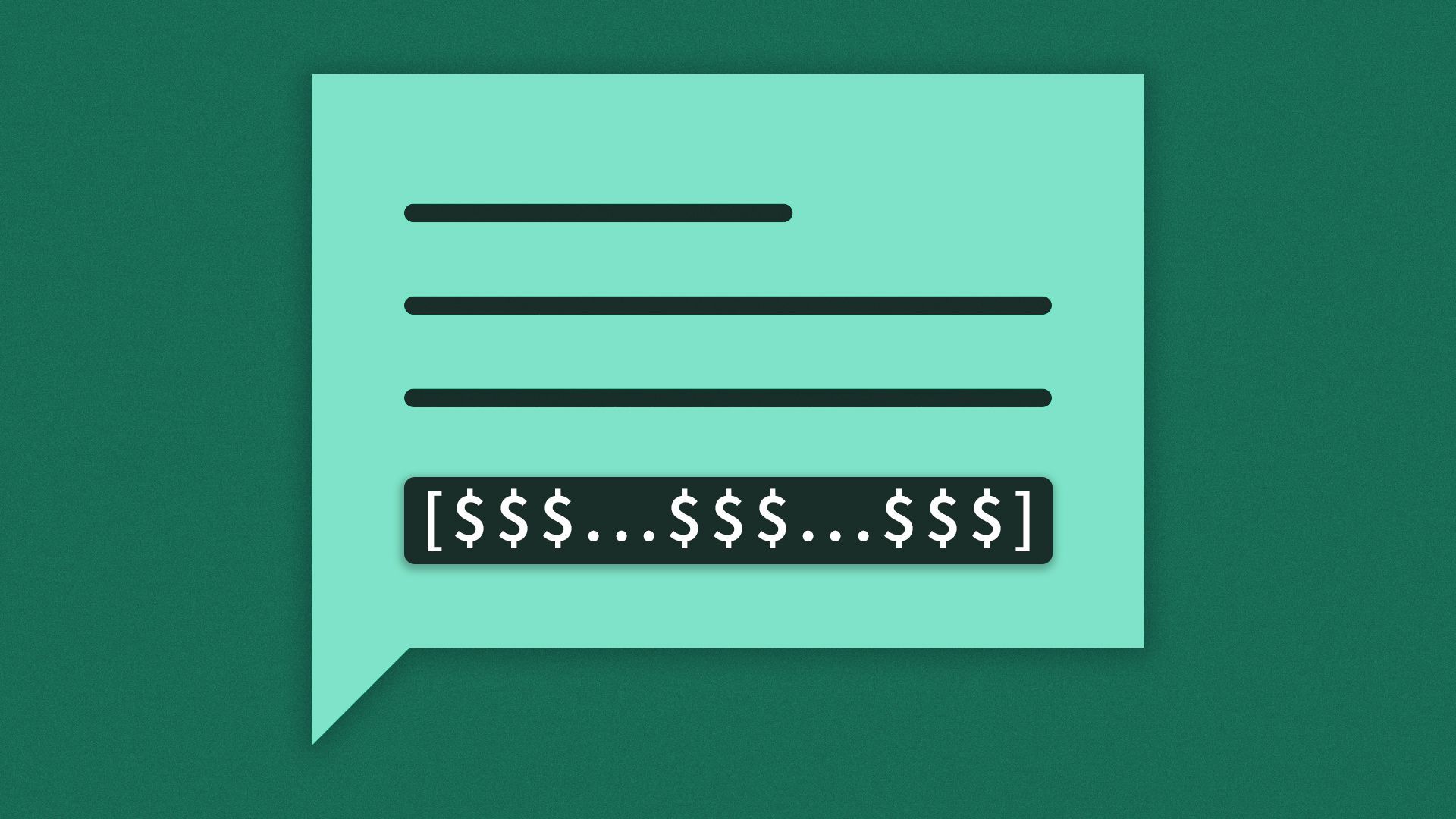Exclusive: Live captioning startup Ava raises $10m funding round

- Tim Baysinger, author ofAxios Pro: Media Deals

Illustration: Gabriella Turrisi/Axios
Ava, a live-captioning tech startup company, has raised a $10 million series A funding round, CEO Thibault Duchemin exclusively tells Axios.
Why it matters: With more than 450 million deaf and hard-of-hearing people around the world, the real-time communication access and transcription market is $20 billion.
Details: The new round brings Ava's total funding to $16.5 million.
- Khosla Ventures led the round, with additional investors including Initialized Capital, Lerer Hippeau Ventures, LeFonds VC, Ring Capital and Sorenson's Enable Ventures, a fund by the founder of the leading interpreting and video relay services for deaf and hard-of-hearing people.
- Ava plans to use the new capital to double its U.S. and France-based team.
How it works: Ava's technology was used during the filming of Apple's Oscar-winning "CODA" to help the deaf actors and their hearing counterparts communicate with each other.
- Ava has three main products: a web and desktop app, a mobile app and Scribe, which combines Ava's artificial intelligence with a human editor.
- Each product is designed to let its users see real-time closed captions layered over any online or video meeting.
- In the case of Scribe, as Ava's AI transcribes the speech, a human edits them to be accurate.
- So far, Ava offers captioning in 12 languages.
The big picture: The pandemic has made remote working — and thus, communicating via video chat — more of the norm. For the deaf community, that has only furthered the need for fast and accurate captioning services.
- Additionally, the frequent use of masks, particularly in office settings, has taken away lip-reading as a means of communication.
- "During COVID, there were a lot of disruptions happening, because a lot of people started seeing masks and not being able to connect," Duchemin says. "Usually, people prioritize having a solid telecommunication platform for the rest of the company, or the university and its classes, that are not necessarily accessible. Zoom captions, for example, didn't exist for a whole year and a half."
Between the lines: Ava is a personal matter for Duchemin, who grew up as a CODA (Child of Deaf Adults) himself.
- Duchemin believes that recent movies like "CODA" and Amazon's "The Sound of Metal" have put more mainstream focus on the deaf and hard-of-hearing communities.
- "Each time you have someone with any tiny bit of hearing loss, they'll turn on the captions for the movies. Our whole premise is, why can't you turn on captions for conversations? It's like the equivalent of the TV remote — that CC button — to apply it for the rest of your life," Duchemin says.